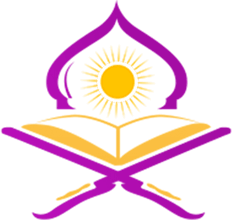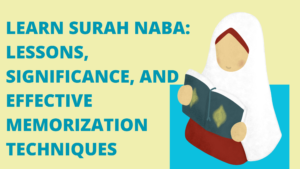To read the Quran correctly and without mistakes, mastering the techniques of Tajweed is paramount. Tajweed encompasses precise rules governing pronunciation, articulation, and the rhythm of Quranic recitation. Three unique techniques within Tajweed include understanding the articulation points of letters (Makhaarij al-Huroof), recognizing the characteristics of letters (Sifaat al-Huroof), and adhering to the rules of stops and pauses (Waqf and Ibtida). These techniques ensure accurate and melodious recitation while preserving the integrity of the Quranic text.
The process of reading the Quran correctly involves several steps. First, learners must familiarize themselves with Tajweed rules and basic Arabic phonetics. They should start memorizing shorter chapters (surahs) to improve recitation skills and listen to expert recitations to emulate proper pronunciation and rhythm. Seeking guidance from knowledgeable teachers is essential, as they provide personalized instruction and feedback tailored to individual needs. Additionally, learners should focus on understanding the meanings of Quranic verses, recite regularly, and maintain spiritual preparation to deepen their connection with the Quran.
Table of Contents
Why Reading the Quran?
In Surah Ibrahim, verse one refers to the Quran as “a Book which We have revealed to you ˹O Prophet˺ so that you may lead people out of darkness and into light, by the Will of their Lord, to the Path of the Almighty, the Praiseworthy”
The Quran is the guard protecting our hearts from going awry or getting misguided by the whispering curses of the devil. Due to its great importance and central role in our lives, Allah has instructed us on how exactly to read the Quran, and what to do to allow its pure essence to intermingle with our souls.
What is the technique of reading of Quran?
The technique of reading the Quran, known as Tajweed, involves precise rules and guidelines for proper pronunciation, intonation, and articulation of each letter and word. Here are three unique techniques within Tajweed:
1. Master Makhaarij al-Huroof (Articulation Points of Letters):
Makhaarij al-Huroof technique focuses on mastering the correct pronunciation of each Arabic letter by understanding its point of articulation (makhraj) within the mouth or throat. Tajweed scholars identify specific points where letters originate or resonate, such as the lips, tongue, throat, or nasal passage. By mastering the precise articulation of each letter, readers ensure clarity and accuracy in their Quranic recitation.
2. Sifaat al-Huroof (Characteristics of Letters):
Sifaat al-Huroof refers to the unique characteristics or attributes of Arabic letters that affect their pronunciation and sound quality. Tajweed rules outline various attributes such as tafkheem (emphasizing the heaviness of letters) and tarqeeq (softening the pronunciation of letters). Understanding and applying these characteristics correctly enhance the beauty, rhythm, and melodiousness of Quranic recitation.
3. Rules of Waqf and Ibtida (Stops and Pauses):
Proper waqf (stopping) and ibtida (starting) are crucial aspects of Quranic recitation, as they dictate where to pause, continue, or begin reciting within a verse or passage. Tajweed provides specific rules for identifying appropriate stopping points based on grammatical structure, punctuation marks, and contextual meaning. Mastery of these rules ensures smooth, coherent, and meaningful recitation while preserving the integrity and clarity of the Quranic text.
How do you read the Quran properly?
Reading the Quran correctly involves following specific steps to ensure accurate pronunciation, proper recitation, and deep understanding of the text. Here are five steps to read the Quran correctly:
1. Learn Tajweed Rules:
Tajweed refers to the rules of proper pronunciation and recitation of the Quranic text. It includes correct articulation of Arabic letters, proper elongation, and merging of sounds, among other aspects. Learning Tajweed rules is essential for reading the Quran accurately. Seek guidance from knowledgeable teachers or utilize resources such as Tajweed books, online courses, or apps to understand and practice Tajweed rules effectively.
2. Start with Basic Arabic Phonetics:
Before diving into Quranic recitation, familiarize yourself with basic Arabic phonetics. Understand the different Arabic letters and their sounds, including vowels and consonants. Practice articulating each letter correctly to ensure accurate recitation. This foundational knowledge forms the basis to start reading the Quran properly.
3. Begin Memorizing Surahs:
Memorizing shorter chapters (surahs) of the Quran is an effective way to improve your recitation skills. Start with shorter surahs such as Surah Al-Fatiha, Surah Al-Ikhlas, or Surah Al-Fil. Focus on memorizing the verses accurately, paying attention to pronunciation, Tajweed rules, and proper rhythm. Regular repetition and review help reinforce memorization and enhance recitation proficiency.
4. Listen to Expert Recitations:
Listening to expert Quran reciters (Qaris) allows you to observe correct pronunciation, Tajweed application, and melodious recitation. Choose reputable Qaris known for their mastery of Tajweed and follow along with their recitations. Pay attention to their articulation, intonation, and rhythm, and try to emulate their style in your own recitation. Listening regularly aids in improving your recitation skills and internalizing proper Quranic pronunciation.
5. Seek Guidance from Knowledgeable Teachers:
Enroll in Quranic recitation classes or seek guidance from knowledgeable teachers who specialize in Tajweed and Quranic studies. Experienced instructors can provide personalized feedback, correction, and guidance tailored to your individual recitation needs. Participate in interactive recitation sessions, ask questions, and practice under the supervision of your teacher to refine your recitation skills effectively.
Bayan al-Quran offers the opportunity to earn an Ijazah in Quran, providing a recognized certificate for mastering Quranic recitation. Join our program to receive expert guidance, learn with qualified instructors, and enhance your skills in Tajweed.
6. Understand the Meaning:
Reading the Quran isn’t just about reciting words; it’s also about understanding their meanings. Take the time to study the translations and explanations of the Quranic verses. Understanding the context, themes, and teachings of each verse enhances your connection with the Quran and allows you to apply its guidance in your life.
7. Recite Regularly:
Consistency is key to improving your Quranic recitation skills. Set aside dedicated time each day to recite the Quran, even if it’s just a few pages or verses. Regular practice helps reinforce memorization, improves fluency, and enhances your command over Tajweed rules. Make Quran recitation a part of your daily routine to experience gradual improvement.
8. Focus on Quality Over Quantity:
While it’s important to recite the Quran regularly, prioritize quality over quantity. Instead of rushing through the verses, focus on reciting each word with precision, clarity, and contemplation. Pay attention to proper pronunciation, Tajweed rules, and the correct application of stops and pauses. Quality recitation leads to better understanding and spiritual connection with the Quran.
9. Seek Spiritual Preparation:
Before reciting the Quran, engage in spiritual preparation to enhance the quality of your recitation. Perform ablution (wudu) to attain ritual purity and a state of reverence. Clear your mind from distractions and center your focus on the divine words you’re about to recite. Approach Quranic recitation with humility, sincerity, and a heart filled with reverence and awe.
10. Practice Reflection and Application:
After reciting the Quran, take time to reflect on its meanings and contemplate how they relate to your life. Consider how you can apply the Quranic teachings and guidance in your daily actions, decisions, and interactions. Quranic recitation isn’t just a ritual; it’s a pathway to spiritual growth, moral development, and positive transformation. Strive to embody the values and principles espoused by the Quran in your life.
11. Study with a Qualified Teacher:
Seek guidance from a knowledgeable and qualified teacher who specializes in Tajweed. A qualified teacher can provide personalized instruction, correct your mistakes, and offer valuable feedback to help you improve your recitation.
Bayan al-Quran prides itself on providing access to highly skilled and knowledgeable Quran teachers who are dedicated to guiding students on their journey of Quranic learning. With a focus on excellence in education and a commitment to fostering a deep understanding of the Quran, Bayan al-Quran ensures that its teachers are proficient in Tajweed, Quranic recitation, and the interpretation of Quranic verses.
12. Practice Regularly:
Dedicate consistent time to practice your Quranic recitation. Start with short passages or individual verses, focusing on mastering pronunciation, rhythm, and melody. Gradually increase the length and complexity of the passages as you gain confidence and proficiency.
13. Listen to Recitations:
Listen to professional Quran reciters to familiarize yourself with correct pronunciation, intonation, and rhythm. Pay attention to the subtle nuances of their recitation, and try to emulate their style and technique in your own practice.
14. Recite Slowly and Deliberately:
When practicing, recite each verse slowly and deliberately, focusing on correct pronunciation and articulation. Pay attention to the placement of each letter and vowel sound, and strive for clarity and accuracy in your recitation.
15. Seek Feedback:
Don’t hesitate to seek feedback from your teacher or peers on your recitation. Welcome constructive criticism and use it as an opportunity to identify areas for improvement and refine your skills.
You can send us your recitation for feedback from a qualified Quran teacher. ()
16. Review and Revise:
Regularly review your progress and identify areas where you may need additional practice or improvement. Continuously revise previously learned verses to maintain proficiency and accuracy in your recitation.
17. Stay Patient and Persistent:
Learning to read the Quran without mistakes is a gradual process that requires patience, persistence, and dedication. Stay committed to your practice, and don’t be discouraged by setbacks or challenges along the way. With consistent effort and dedication, you can improve your recitation and read the Quran with confidence and accuracy.
By following these steps and committing to consistent practice, dedication, and guidance from knowledgeable sources, you can read the Quran correctly with proper pronunciation, Tajweed application, and understanding of its divine message.
Make these steps as your Quranic reading routine, you can deepen your connection with the Quran, improve your recitation skills, and derive greater spiritual benefit from your engagement with the divine scripture.
How to read Quran without mistakes?
To read the Quran without mistakes, it’s crucial to first learn the rules of Tajweed, which govern proper pronunciation and recitation. This involves understanding the correct articulation of Arabic letters, pronunciation rules, and applying appropriate elongations and stops. Consistent practice is essential, as regular recitation helps internalize the correct pronunciation and improves fluency.
Additionally, listening to recitations by experienced Quranic reciters provides valuable guidance and serves as a model for correct pronunciation and rhythm. When reciting, it’s important to go slowly, focusing on each word and maintaining clarity and accuracy. Seeking feedback from knowledgeable individuals, such as Quran teachers or peers, can also help identify and correct mistakes, further refining one’s recitation skills. Through dedicated learning, practice, and feedback, individuals can strive to read the Quran accurately and with proficiency.
Follow The rules of reading the Quran:
Many rules guide the process of reading the Quran, and the first and most important of all is that one must read the Quran in Arabic. Other important rules are to cleanse one’s self through performing Wudoo and reciting Istiazah and Basmalah before starting to read the Quran.
Learn Quran Online With Bayan al-Quran:
Embark on a transformative journey of Quranic learning with Bayan Al-Quran’s comprehensive online courses. Our platform offers an authentic and immersive experience tailored to learners worldwide. Whether you’re a beginner or seeking to enhance your skills, our Tajweed courses provide expert guidance and structured learning to master the art of Quranic recitation.
🎓 Expert Guidance:
Benefit from experienced instructors who specialize in Tajweed, breaking down complex rules into manageable segments for learners of all levels.
✨ Key Features:
- Structured, step-by-step learning approach.
- Access to high-quality instructional materials.
- Real-time feedback from qualified tutors to enhance your practice.
- Flexible learning schedules to accommodate your pace and convenience.
- Immerse yourself in the melodious tones of Quranic recitation, enriching your spiritual experience.
🌟 Why Choose Bayan Al-Quran?
Join our vibrant community dedicated to perfecting Quranic recitation. Build a profound connection with the divine words of the Quran and enrich your spiritual journey. Choose Bayan Al-Quran for a transformative learning experience and embark on a path to mastering Tajweed with confidence.
You can also attend online Quran Classes with Bayan al-Quran with Native Arab tutors. There are also several courses that can help you in this regard:



















